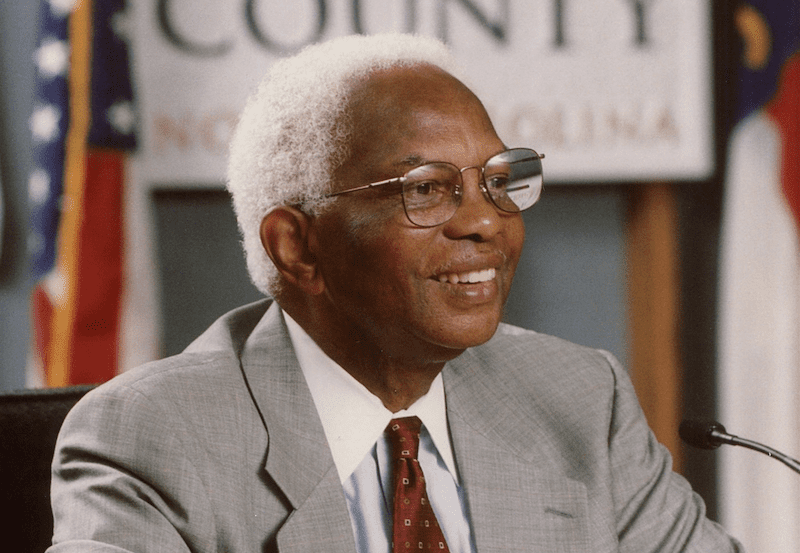Black History Month: Continuing a Legacy

As we celebrate Black History Month, we are reminded of the rich history that Southeast Raleigh holds and the contributions and sacrifices made by ordinary citizens who have impacted our community locally and statewide.
One of those leaders is the late Senator Vernon Malone, who lived and worked his entire life in Raleigh and its surrounding communities. For close to four decades, he held an elective office. He believed that every child, regardless of race, could reach their full potential if given a solid education. Malone’s public career began with his selection to the Raleigh Parks and Recreational Advisory Committee in 1968. In the ensuing years, he was also appointed to the Raleigh Community Relations Commission and an advisory committee to the mayor.
Throughout the sixties and seventies, Whites migrated out of the city and into the growing suburbs around Raleigh. This resulted in an increasingly polarized dual school system, with a largely Black urban school population and a growing White suburban school populace. The respective school boards realized that merging the two school systems was necessary to achieve racial and economic balance in the close to eighty schools throughout the city and county.
Whites feared their schools’ culture might change, and their children might be forced to attend historically black schools in the city. Blacks fretted about losing their school traditions and the vocal opposition they heard from whites throughout the community. Additionally, the business community grew alarmed at the prospect of white flight from the city and what it meant for the long-term economic health of Raleigh.
It was into this milieu that Vernon Malone was selected as Vice-Chairman of the Interim Board of Education, which developed the plans to merge the two systems. When the board officially became the Wake County Board of Education, Vernon Malone was elected as its inaugural chairman in 1976. It was his responsibility to bridge the gap that existed between the divided constituencies. His leadership allowed for the merger and integration of the schools in Raleigh to proceed without the incidents of resistance and violence that marred efforts in other urban areas. Malone’s dedication to Raleigh’s citizens continued after leaving the school board. As chairman of the Wake County Board of Commissioners and state senator, he actively supported Meals on Wheels and the Interfaith Food Shuttle. The two organizations reflected his belief that every person was entitled to a decent standard of living. In addition to being a tireless advocate for children and schools, he also promoted extending library services to underserved neighborhoods throughout Raleigh. For close to four decades Vernon Malone served his community as a school board member, county commissioner, and state senator.
Senator Malone and his wife, Susan, lived in Southeast Raleigh most of their lives, initially living in Rochester Heights in the 1960s and later moving to Lyndhurst Manor off of Rock Quarry Road in the 70s. While here, they raised their family, to include son, Dr. Barry Malone, who recently joined the Southeast Raleigh Promise board of directors. Senator Malone passed away in 2009, but his legacy lives on and his work continues through those whose lives he influenced.
As we think about the many who have gone before us, we are reminded of the present opportunity we have to be history makers ourselves. We can do this by staying involved and working collectively and cooperatively to leave a lasting and positive impact on our Southeast Raleigh community.
Working toward equity together,
Yvette Holmes
CEO
